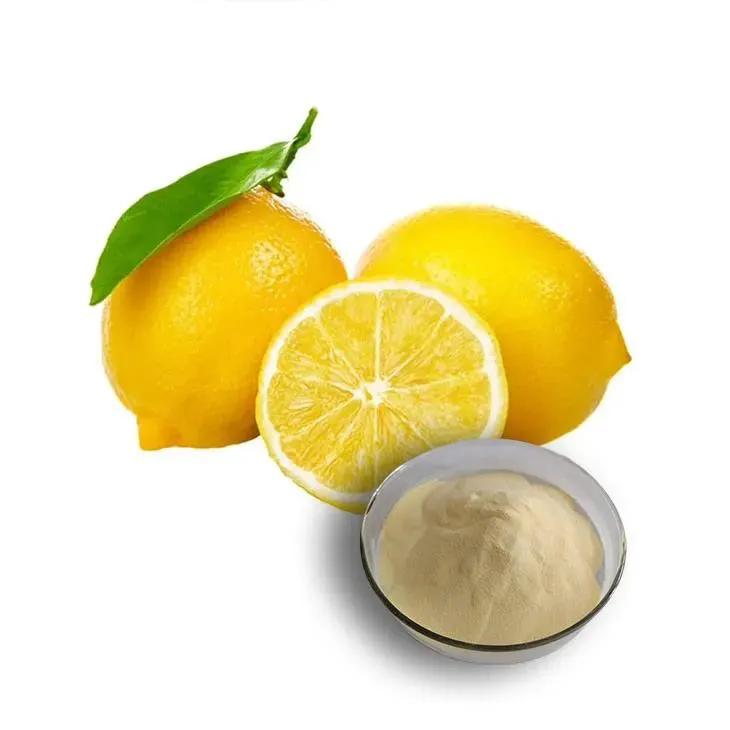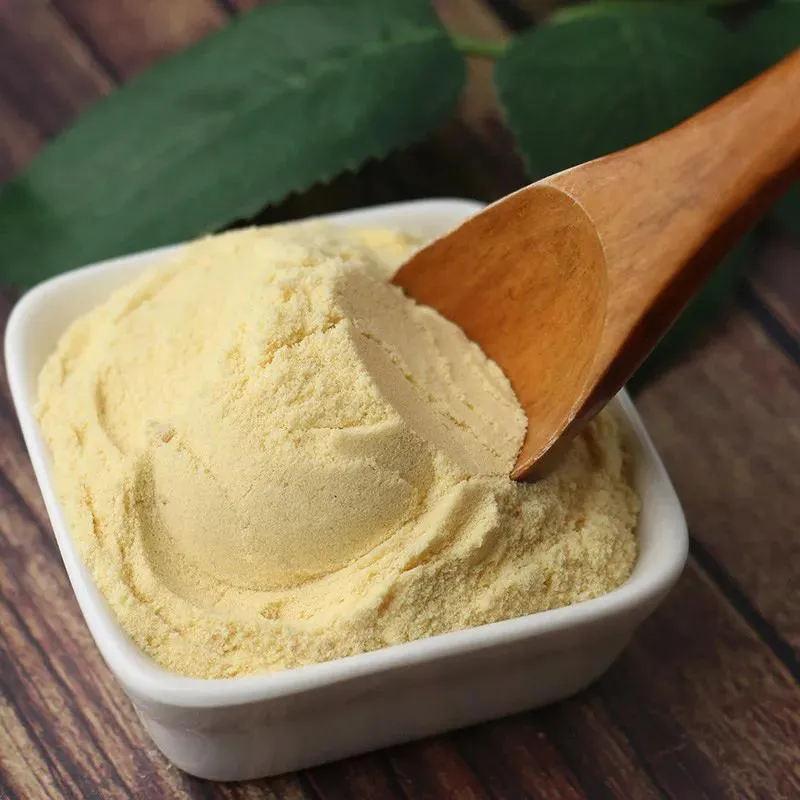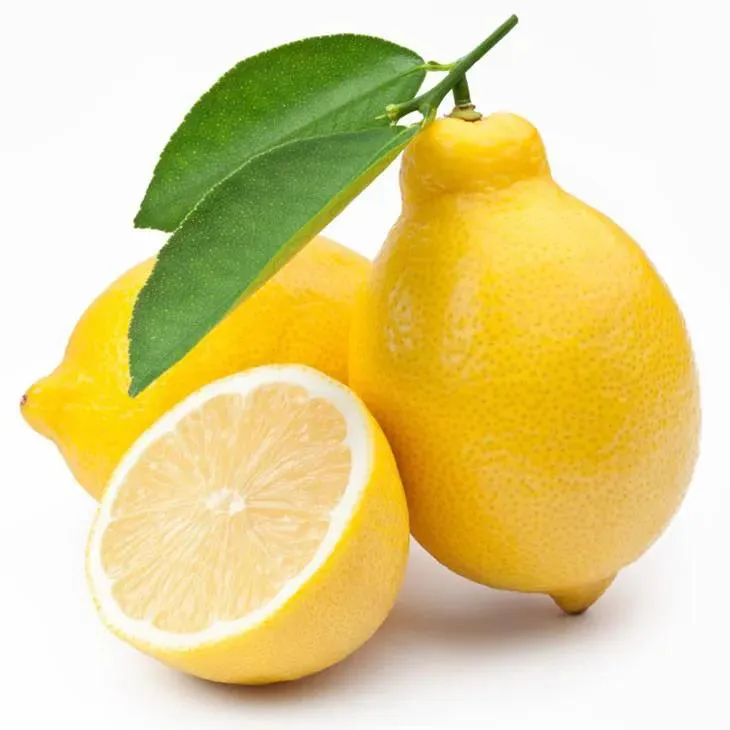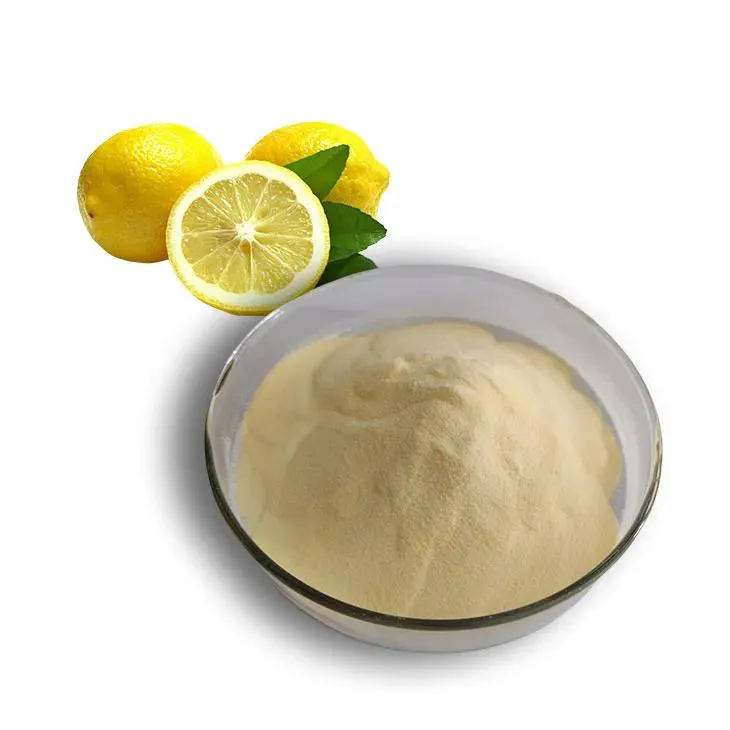- 0086-571-85302990
- sales@greenskybio.com
Lemon Juice Powder: Uses, Advantages and Manufacturing Processes.
2024-11-12

1. Introduction
Lemon Juice Powder is an innovative product that has been gaining popularity in recent years. It is a convenient alternative to fresh lemon juice, offering a concentrated form of the tangy and refreshing flavor that lemons are known for. This powder has found its way into a wide range of applications, both in domestic and commercial settings, due to its unique properties and the ease with which it can be used.

2. Uses of Lemon Juice Powder
2.1 Home Kitchen Applications
- Baking: In baking, Lemon Juice Powder can be a great addition. It can be used to add a lemony zing to cakes, muffins, and cookies. For example, when making a lemon pound cake, instead of squeezing fresh lemons and risking adding too much or too little liquid, a measured amount of lemon juice powder can be added to the dry ingredients. This ensures a consistent and evenly distributed lemon flavor throughout the baked good.
- Cooking: When cooking savory dishes, lemon juice powder can enhance the flavor profile. It can be used in marinades for meats or fish. For instance, a simple marinade for chicken can be made by mixing lemon juice powder with olive oil, garlic, and herbs. The powder will impart a bright and fresh lemon flavor to the chicken, without the need to worry about the lemon juice spoiling quickly as with fresh juice.
- Homemade Beverages: Making homemade lemonade or other lemon - flavored drinks is made easier with lemon juice powder. All that is required is to dissolve the powder in water and add sugar to taste. It can also be used to create unique cocktails or mocktails. For example, a lemon - basil mocktail can be made by mixing lemon juice powder with fresh basil leaves, soda water, and a bit of honey for sweetness.
2.2 Commercial Applications
- Candy Manufacturing: Lemon - flavored candies are a popular treat, and lemon juice powder is a key ingredient in their production. The powder can be combined with sugar, corn syrup, and other flavorings to create the distinct lemon taste that consumers love. It allows for precise control over the flavor intensity, ensuring that each batch of candies has a consistent lemon flavor.
- Jam and Jelly Production: In the production of lemon jams and jellies, lemon juice powder can be used as a substitute for fresh lemon juice. It helps to thicken the mixture and adds a strong lemon flavor. This is especially useful when making large batches, as the powder can be measured accurately and stored more easily than fresh juice.
- Sauce Making: Lemon - based sauces, such as hollandaise or lemon butter sauce, can benefit from the use of lemon juice powder. In a commercial kitchen, the powder can be quickly added to the sauce mixture, reducing the preparation time. It also ensures that the sauce has a stable lemon flavor, regardless of the season or availability of fresh lemons.

3. Advantages of Lemon Juice Powder
3.1 Ease of Use
One of the major advantages of lemon juice powder is its ease of use. Unlike fresh lemon juice, which can be messy to extract and measure, lemon juice powder can be easily scooped or measured with a spoon. It dissolves quickly in liquids, making it convenient for various applications. For example, when making a salad dressing, a small amount of lemon juice powder can be added directly to the oil and vinegar mixture and stirred until dissolved, without the need for any special equipment or techniques.
3.2 Long - Term Storage
Lemon juice powder can be stored for long periods without losing its quality. This is in contrast to fresh lemon juice, which has a relatively short shelf - life and can spoil quickly. The powder can be stored in a cool, dry place in an airtight container, and it will retain its flavor and nutritional value for an extended period. This makes it an ideal choice for those who do not have access to fresh lemons all the time or for commercial producers who need to stockpile ingredients. For instance, a small - scale jam - making business can purchase a large quantity of lemon juice powder and store it until needed, without worrying about spoilage.
3.3 Nutritional Benefits
Despite being in powder form, lemon juice powder retains many of the nutritional benefits of fresh lemon juice. Lemons are a rich source of vitamin C, which is an antioxidant that helps boost the immune system. Lemon juice powder also contains other beneficial compounds such as flavonoids. These nutrients can contribute to overall health and well - being. For example, consuming products made with lemon juice powder can still provide some of the antioxidant protection that fresh lemons offer.

4. Manufacturing Processes of Lemon Juice Powder
4.1 Juice Extraction
The first step in the manufacturing process of lemon juice powder is the extraction of juice from fresh lemons. This is typically done using a mechanical juicer. High - quality lemons are selected, washed thoroughly to remove any dirt or contaminants, and then cut in half. The juicer squeezes the lemons to extract the juice. The juice is then strained to remove any pulp or seeds, resulting in a pure lemon juice. This initial step is crucial as the quality of the fresh juice will directly impact the final product.
4.2 Drying Process
- Spray Drying: One common drying method used in the production of lemon juice powder is spray drying. In this process, the pure lemon juice is atomized into a fine mist. This mist is then sprayed into a drying chamber where hot air is circulated. The hot air quickly evaporates the water content from the juice droplets, leaving behind a fine powder. Spray drying is preferred because it can produce a powder with a relatively fine particle size, which is desirable for easy dissolution and good flow properties. However, it requires careful control of the drying parameters such as temperature and air flow to ensure that the powder retains its flavor and nutritional properties.
- Freeze Drying: Another method is freeze drying. In this process, the lemon juice is first frozen. The frozen juice is then placed in a vacuum chamber where the pressure is reduced. Under these low - pressure conditions, the ice in the frozen juice sublimes, which means it turns directly from a solid (ice) to a gas (water vapor), leaving behind the dry powder. Freeze drying is known for its ability to preserve the quality of the product as it causes less damage to the delicate flavor and nutritional components of the lemon juice. However, it is a more expensive and time - consuming process compared to spray drying.
4.3 Packaging
Once the lemon juice powder has been produced through the drying process, it is packaged. The packaging is an important step as it helps to protect the powder from moisture, air, and light, which can all degrade the quality of the product. The powder is typically packaged in airtight containers made of materials such as plastic or aluminum foil. These containers are labeled with important information such as the product name, ingredients, nutritional information, and expiration date.

5. Conclusion
Lemon juice powder is a versatile and useful product with a wide range of applications in both home and commercial kitchens. Its advantages, including ease of use and long - term storage, make it an attractive alternative to fresh lemon juice. The manufacturing processes involved in producing lemon juice powder are carefully designed to ensure that the final product retains the essence of fresh lemon juice, including its flavor and nutritional benefits. As consumer demand for convenient and long - lasting food products continues to grow, lemon juice powder is likely to become an even more important ingredient in the food industry.
FAQ:
What are the common uses of lemon juice powder at home?
Lemon juice powder can be used at home to add a zesty lemon flavor quickly. It can be used in baking, for example, in cakes or cookies to give a tangy taste. In cooking, it can enhance the flavor of dishes like fish or chicken. Also, it is great for making homemade beverages such as lemonade or flavored water.
How is lemon juice powder used in commercial products?
In commercial settings, lemon juice powder is used in the manufacturing of various lemon - based products. For candies, it provides the characteristic lemon flavor. In jams, it adds a fresh and tangy taste. And in sauces, it can be used to give a citrusy kick and balance the flavors.
What are the main advantages of lemon juice powder?
One of the main advantages of lemon juice powder is its ease of use. It can be easily measured and added to recipes. Another advantage is its long - term storability without losing quality. This means it can be kept in the pantry for a long time and still be used effectively when needed.
What is the first step in the manufacturing process of lemon juice powder?
The first step in the manufacturing process of lemon juice powder is squeezing fresh lemons to obtain the juice. This fresh lemon juice serves as the base material for the subsequent drying process.
How does the drying process ensure the quality of lemon juice powder?
The drying process is carefully designed. It is set up in such a way that the powder retains the essence of fresh lemon juice. This includes retaining its vitamins and antioxidants, which are important for its flavor and potential health benefits.
Related literature
- The Production and Quality Control of Fruit Juice Powders"
- "Lemon Juice: Properties, Processing and Applications"
- "Advances in Drying Technologies for Citrus Juices"
- ▶ Hesperidin
- ▶ citrus bioflavonoids
- ▶ plant extract
- ▶ lycopene
- ▶ Diosmin
- ▶ Grape seed extract
- ▶ Sea buckthorn Juice Powder
- ▶ Beetroot powder
- ▶ Hops Extract
- ▶ Artichoke Extract
- ▶ Reishi mushroom extract
- ▶ Astaxanthin
- ▶ Green Tea Extract
- ▶ Curcumin Extract
- ▶ Horse Chestnut Extract
- ▶ Other Problems
- ▶ Boswellia Serrata Extract
- ▶ Resveratrol Extract
- ▶ Marigold Extract
- ▶ Grape Leaf Extract
- ▶ blog3
- ▶ blog4
- ▶ blog5
-
Organic Tongkat Ali extract powder factory.
2024-11-12
-
How to make powder with ashwagandha extract.
2024-11-12
-
Rosehip extract manufacturers from China.
2024-11-12
-
The best cat's claw extract in nature.
2024-11-12
-
Chinese Dandelion Leaf Extract Suppliers.
2024-11-12
-
Passionflower Extract
2024-11-12
-
Lavender Extract
2024-11-12
-
Tinospora cordifolia extract
2024-11-12
-
Chia Seed Powder
2024-11-12
-
Cassia Seed Extract
2024-11-12
-
Golden Seal Extract
2024-11-12
-
Oyster Mushroom Extract Powder
2024-11-12
-
Hedyotis Diffusa Extract
2024-11-12
-
Aguaje Extract
2024-11-12
-
Licorice Root Extract Powder
2024-11-12





















